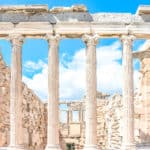Thousands of years ago, philosophy in Athens asked questions which we still cannot answer. What makes us happy? What is real? How do we know what we know? Through an Athens philosophy tour, you can revisit the Athenian greats of Plato, Socrates and Aristotle. Here’s what it’s like. Plus, how you can arrange your own…
Check out our packing list for Greece here.
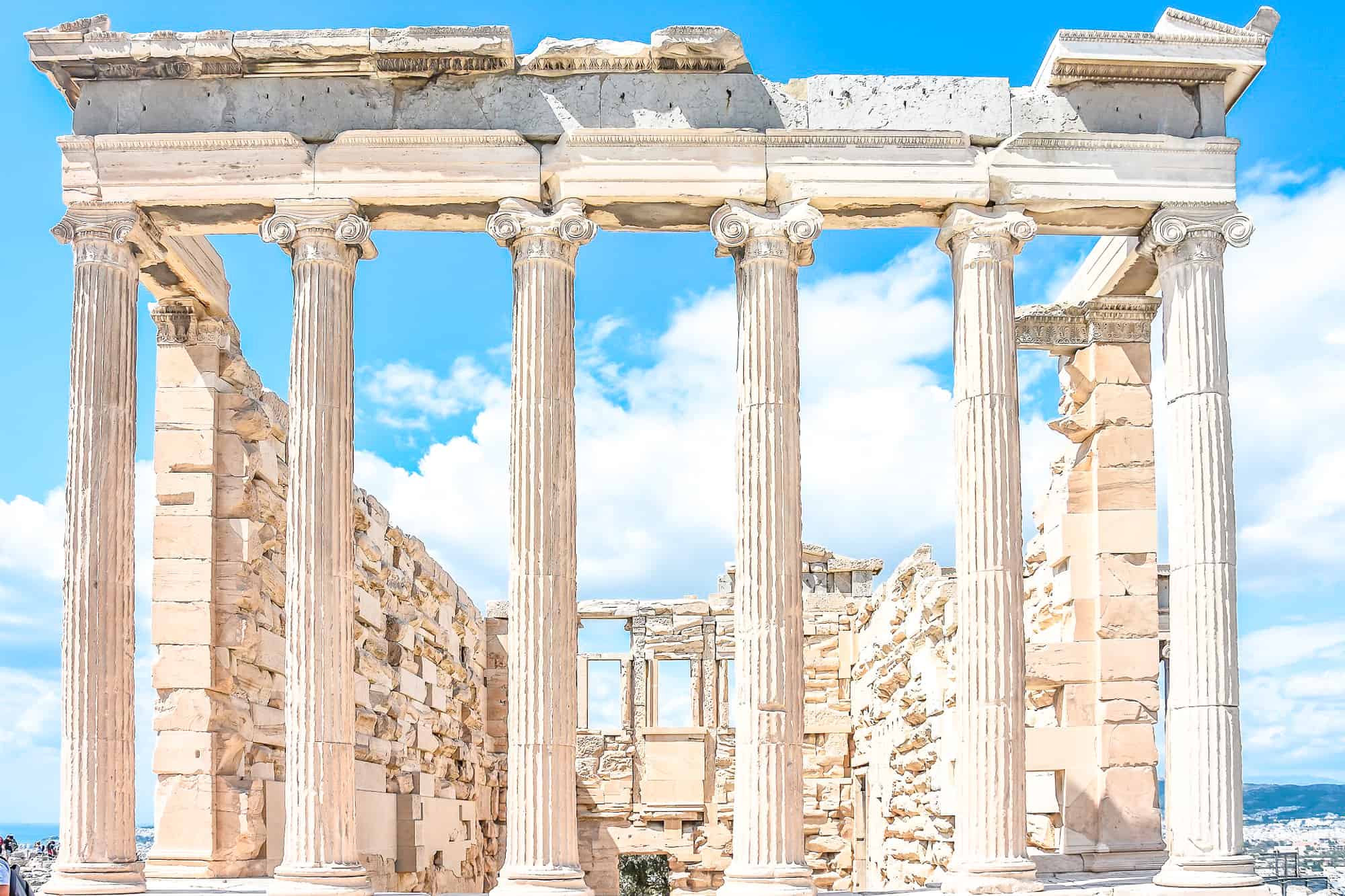
Disclosure: I received a complimentary tour from Context for review purposes. As ever, as always, I kept the right to write what I like: mud, naked exercise, philosophy and all. Otherwise, without such truth, as these great philosophers would say, what is the point of life?
An Athens Philosophy Tour
Searching for happiness is a modern affair, so we’re told.
We’re told we’ve lost touch with what makes life meaningful, ablaze in a flutter and clutter of status updates, selfies and self-centred notions of me me me all the time.
This idea, of course is nonsense.
Humans have pursued happiness since time began.
But it’s in the shade and the shelter of Athens, that one of the oldest pursuits of happiness took time to percolate around.
Early Philosophy in Athens
Athens, famed for its hilltop Acropolis, its white-pillared stone democracy and somewhat unfortunate use of slaves, marks the spot where not only did wise men walk the ground debating these things, they took the trouble to write them down.
And that ushers in some of the most spine-tingling retracing of steps that thinking and travel have ever produced.
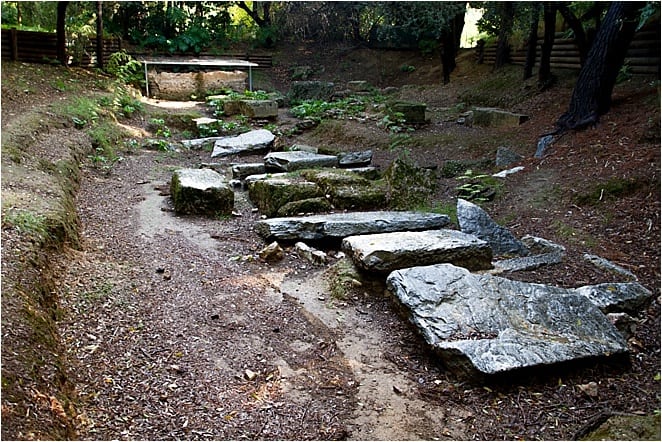
Far From the Tourist Track: The Original Site of Plato’s Academy
I meet Georgia Sermamoglou-Soulmaidi, a docent from Context, beneath a battered umbrella rendered futile by the storm.
I’m told that rain is rare in Athens – but when it arrives, it does so with all the wrath of a vengeance from the gods.
The scorched earth and silver-barked olive trees look lost in the rapidly rising swamp as the lowly ruins that were once so important fill with terracotta pools pockmarked by vicious rain.
There’s no sign of tourists here, nor anyone much at all.
It’s quiet, green, serene – and thought to be the original stomping ground for Plato and his Academy.
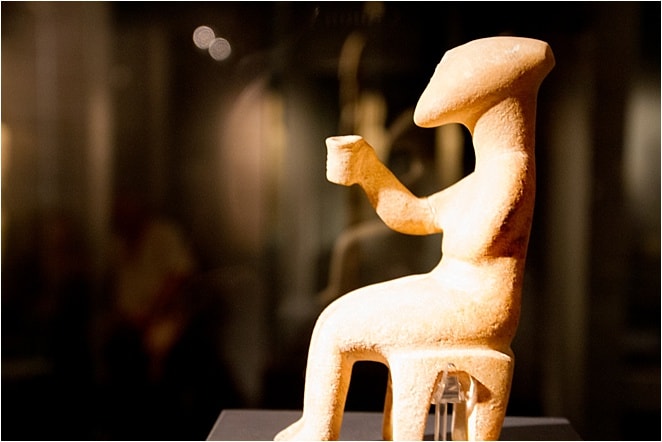
A Refresher in Greek Philosophy
The whole story begins around 400 or so BC, when Athens had entered into a drawn-out war with Sparta and the great experiment with democracy was beginning to falter as Athenians began to lose their power.
Socrates, widely credited as being the father of western civilisation, spends his days antagonising the great and good by subjecting them to what has now become known as the Socratic Method.
Close to a modern day cross examination, it involves asking someone to define a subject (such as justice, virtue or love) before using general examples and further questions to expose the insufficiency of the answer. If you’ve ever been on the receiving end of this kind of questioning, you’ll know it usually makes you tempted to throttle the questioner.
In fact, in ancient Greece, this instinct was taken a step further as Socrates was tried, convicted and sentenced to death for his line of philosophy (technically asebeia: corrupting the youth and failing to acknowledge the gods that the city acknowledged.) In a perverse twist, more judges voted to kill him than had found him guilty in the first place, so infuriated did they become at his manner of communication.
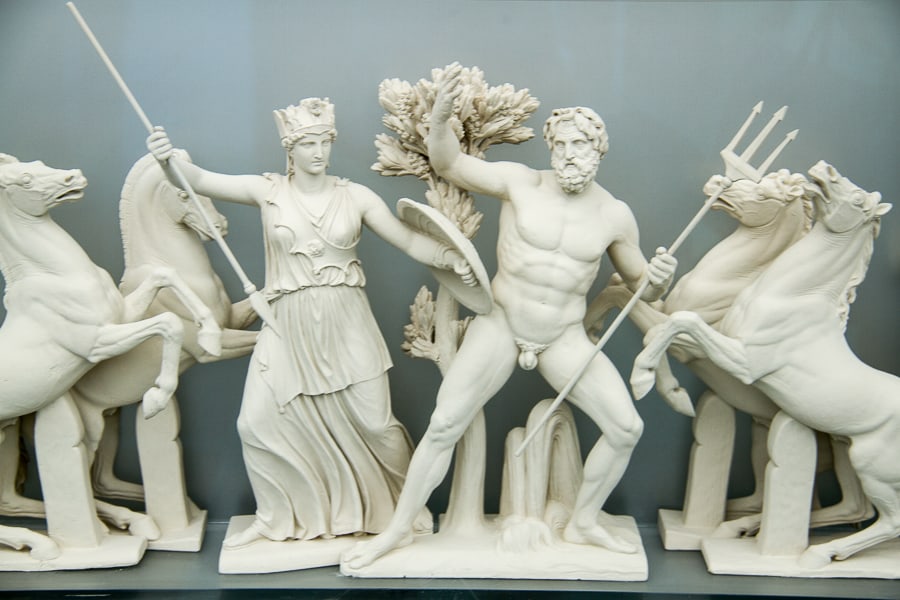
Plato, the Cave and the Matrix
Not everyone was enraged, however.
Plato, a younger student, became so enamoured that he abandoned his own political career to become a philosopher himself, travelling and studying across the Mediterranean before returning to Athens to establish his own Academy (often claimed to be the oldest university in the world, since it taught more than purely philosophy.)
The swiftest shortcut to understanding Plato’s world view lies in his story of the world as a cave. All the men and women lie chained to the floor while behind them, monstrous gods hold puppets in the firelight to cast shadows on the wall in front of them. All the people can see and all they know are the shadows ahead until one day, one escapes from his chains and turns to see the truth, the real reality behind.

It is, of course, a low-tech version of Keanu Reeves and the Matrix.
However, those who return to tell the truth to those in chains find themselves beaten to death, so sure are those in chains that the shadows they see are real.
Both Plato and Socrates, in essence, believe that virtue and higher truths lead to happiness and freedom more than worldly goods and tokens of status.
They believe that questioning what we believe to be true is the equivalent of turning from the chains and examining reality for what it is.
Where It All Happened
To spend the time with an educated mind discussing ideas such as these, is a deep-seated joy that life seldom affords.
To walk among the stones and along the soil where Plato stood and uttered his words thrills the soul in a way that’s hard to explain.
Here, Plato taught his best student and the future philosopher to Alexander the Great: Aristotle.
And Aristotle is perhaps the most famous of the ancient Greek philosophers. You can find his work everywhere, from the Oxford University Press to the Princeton University Press, to those cute little postcards on souvenir stalls.
His thoughts flourished in Ancient Greece then spread through the Roman Empire to become the founding principles of western philosophy today.
Politics, ethics, thoughts about the republic. He left no thought unturned. But did so, by modern standards, in a rather surprising way…
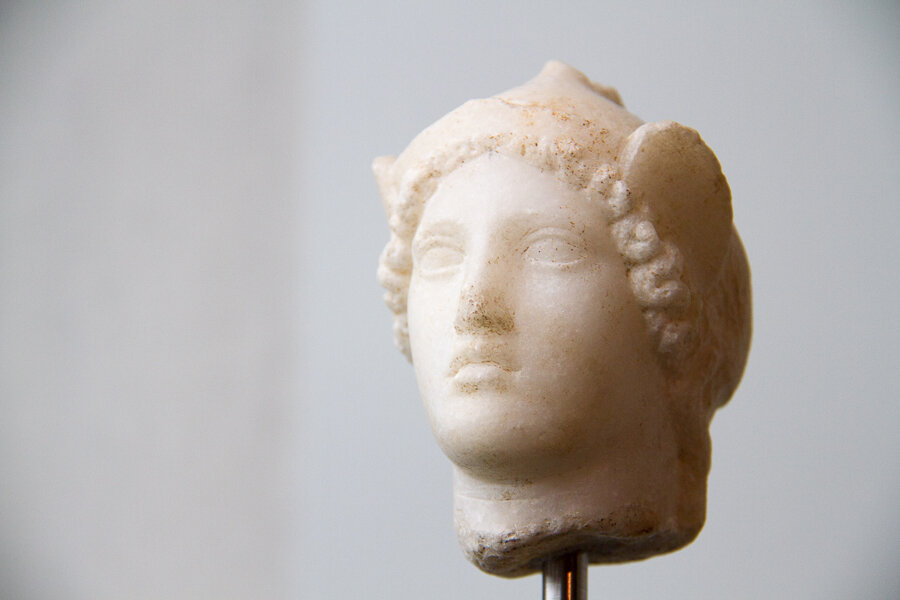
Naked Philosophy. Literally.
Of course, the lofty imaginings were only slightly undermined by the discovery that young men in Ancient Greece would often exercise and study in the nude (apparently the word gymnasium actually means “school for naked exercise.”)
A brief flashback to my own school days is enough to make me glad that we didn’t adopt everything from Ancient Greece .
And just like that, my two hours are up.
Back to the Rest of Athens
I’ve been allowed to question ancient Athens, the role of religion, of goodness, justice, virtue and the disquieting notion of slavery in the much lauded Athenian development of western democracy.
My mind and soul is left fizzing and buzzing and turning its thoughts around, one over the other.
Even the clouds have cleared from the sky.
As our footsteps squelch through the mud of history, Georgia folds up her umbrella and returns us to the tarmac road.
That’s the end of today’s Athenian philosophy tour. I’ll have to figure out the rest on my own.
Athens Philosophy Tours
This beautiful Athens philosophy tour took place through Context, a well respected company that employs academics to run small group tours.
However, I have also found some other philosophy tours in Athens for you:
- Visit the Agora and Hill of Pynx with Athens Insiders here.
- Pay what you feel is right with this Democracy in Athens tour.
- See another side of the Agora with this tour.
More on Travel in Greece
- 23 Unusual Things to do in Athens
- The Athens Food Guide: what you need to know about where to eat in Greece.
- Mykonos or Santorini for your next trip?


